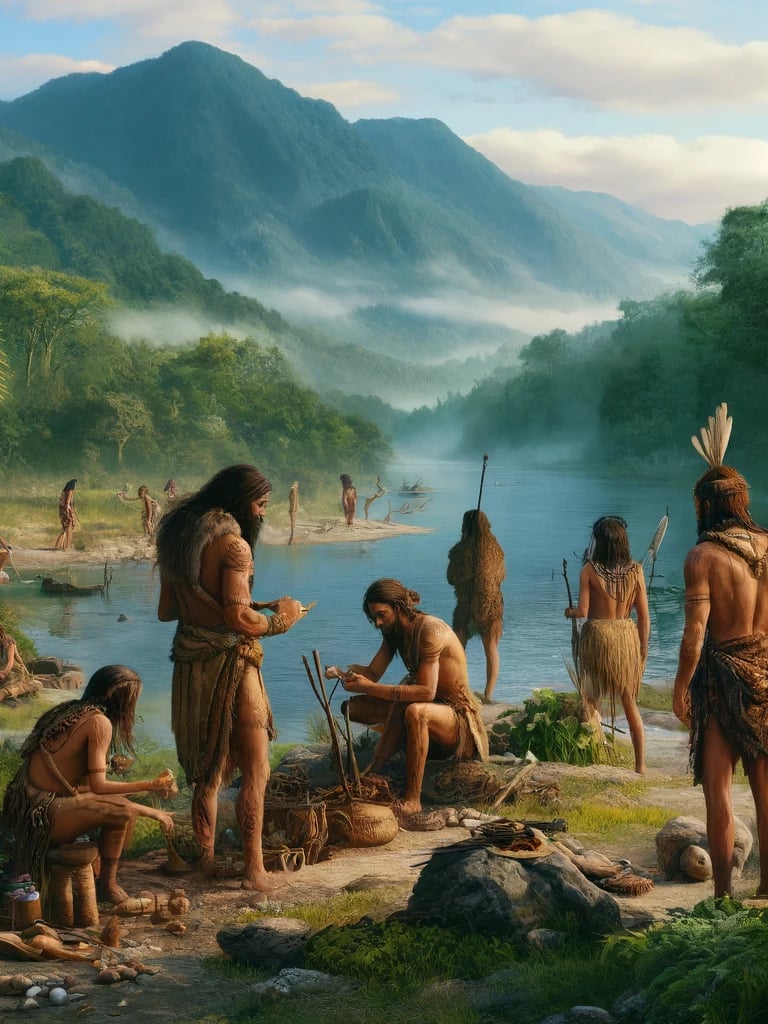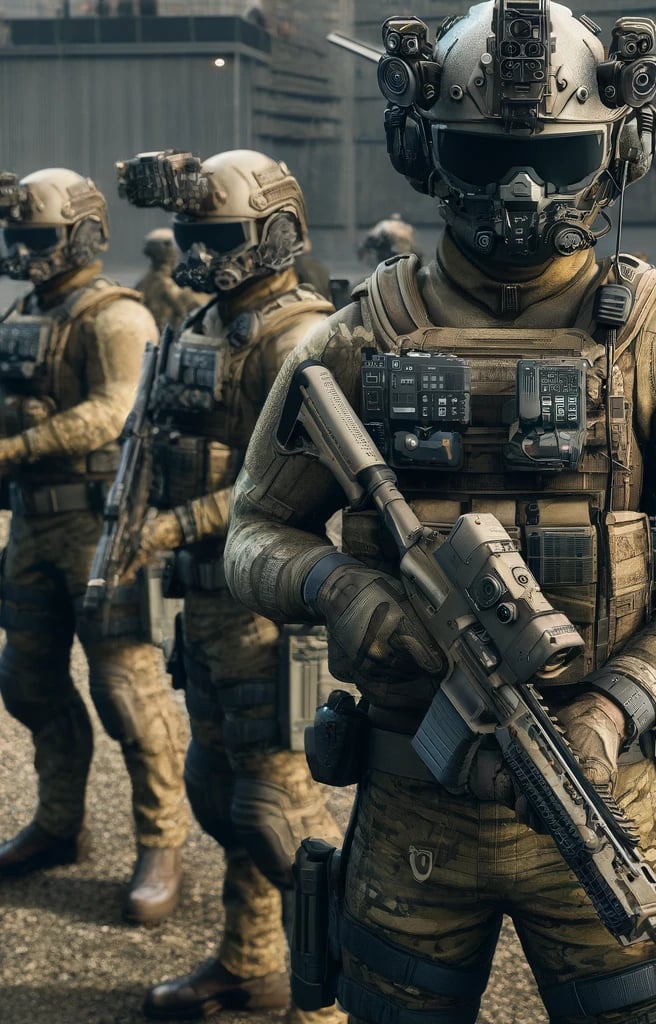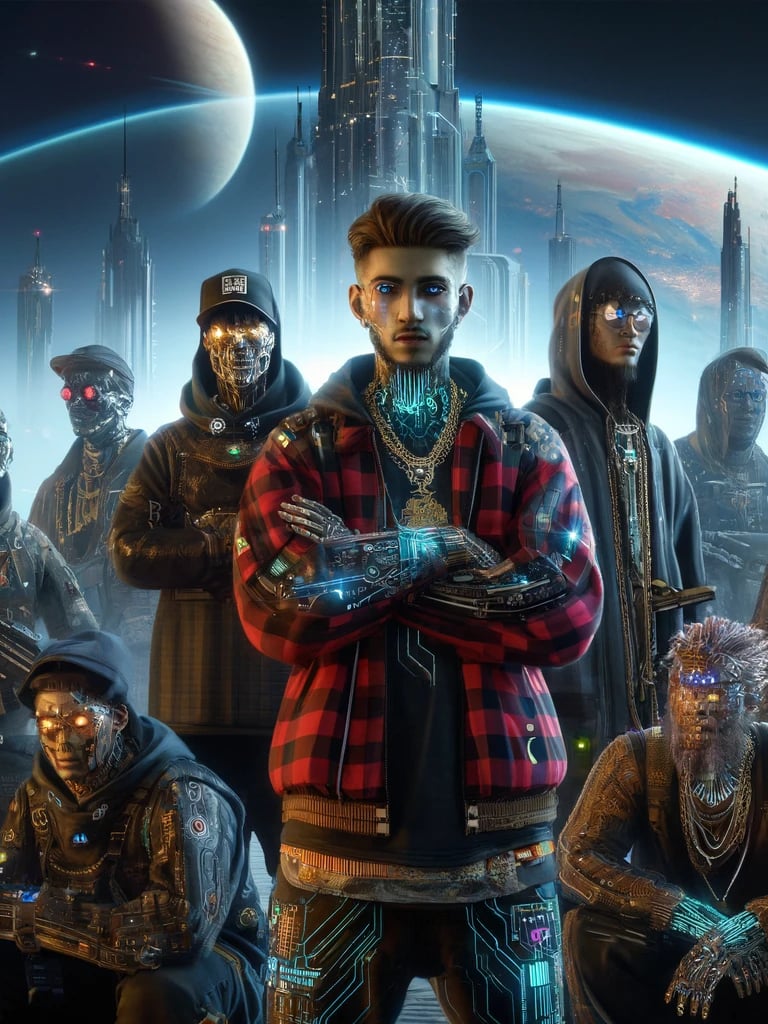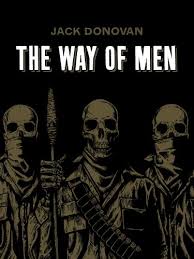Review of Jack Donovan's "The Way of Men".
Review of "The Way of Men" book by Jack Donovan.
MASCULINITYBOOK REVIEW
Your support through our carefully selected affiliate links helps us keep the blog thriving — at no extra cost to you.
Hello fellow readers and welcome to the blog. Today we are going to have a look at "The Way of Men" by Jack Donovan. In this book he talks about his view on what a man is, within the context of what many people call the crisis of masculinity. This view is the product of his own research, so here he invites the reader to assess the information he shares and to reach their own conclusion. This book is Donovan's answer to the question, "what is masculinity?". Donovan explores the essence of masculinity and what it means to be a man. He argues that masculinity is not a social construct but rather a set of innate traits and instincts that are essential for survival and success in a competitive world. He emphasizes the importance of embracing and embodying these traits in order to fulfill one's potential as a man. I will give a quick summary of each chapter and share my thoughts. So, let's dive into it!
The Way of Men is The Way of The Gang - There is an evolutionary psychology frame to Donovan's approach. The same way that you would answer the question, "how does a lion behave?". You would go to its natural habitat, observe it and analyse it. You would not go to a zoo for instance. That is not its natural habitat and therefore not its natural behaviour. The same can be said about man. The lives of unprecedented comfort and wealth we enjoy, cannot be the context or frame through which we define masculinity, according to Donovan. We must look at our ancestors. Man is a social being. We organise ourselves with people who hold the same goals as us and we cooperate in order to reach said goals. That is the gang. In Donovan's view that requires a man to identify who is part of their group or tribe and who is not. This gang will compete with other gangs for survival, territory, resources, even women etc... No modern understanding of males and females can take precedence to this goal of surviving. Anything that does not assist this goal of survival is rejected. In this environment only the strong and fit will survive. If you make a mistake here, the rival gang will have an advantage. That has been the way human kind has organised themselves for most of their time on earth.
The Perimeter - In this chapter Donovan invites the reader to imagine himself as part of a small group or tribe fighting for survival, whether in a distant past or dystopian future. In this context there are none of our modern technologies available, like contraception, cars or medication for example. How would small groups organise themselves in order to survive? How would they define their group? How would they decide who does what? How would they identify threats? Who would fight or hunt? Who would mind children? How would they defend their territory or perimeter? Who would be in charge, if anyone at all? The survival of the group is entirely dependent on how well these tasks are performed. Any mistake could mean death for you or your group. Your ability to take and keep any resource is equal to your ability to defend it from other tribes, who also require it for their own survival.
Most of us have seen movies depicting similar scenarios. We all can picture how groups organise themselves, or how the surviving group would look like. Biological realities would determine most, if not all roles. Our society is invested in reducing or eliminating these differences as much as it can. No wonder there's so much confusion regarding sex/gender. Even with the wealth of information we have available, we are still debating what masculinity is. A concept that appeared so obvious in a not too distant past, now apparently is up for grabs. But no matter how much we try to erase these differences, they remain. Whether a small group or an entire civilisation competing for survival, there are always consequences for disregarding reality. A professor of anthropology and sociology at the City University of New York, Dr. Charles Winick, studied 2,000 different cultures. He found that some 55 gender specific roles. That is, no defined role for male and females. According to him, not a single one of those cultures has survived.
The Tactical Virtues - As civilizations progress from hunter-gatherer societies to more complex and organized structures, the concept of manhood evolves, encompassing a broader range of virtues beyond physical prowess alone. Take the Romans, for example. As their society became more sophisticated, the emphasis shifted from universal martial skills to valuing traits such as intellectual pursuits, philosophical insight, political acumen, and self-discipline. In the cities, the virtuous man was not defined by his ability to wield a sword, but by his capacity for reasoned discourse, leadership, and personal restraint. These civic and moral virtues were added to the tactical , survival virtues of old. Donovan asserts that manly virtues are virtues that define manhood. Virtues without which a man cannot be called a man. Civilized virtues are more about being a good member of a group or society and less specific about being a man. For Donovan the fighting virtues are the manly virtues. The men Donovan envisions are competent, courageous, trustworthy and strong. The type of men you would want around you when fighting for survival or defending your own perimeter from other strong men. For Donovan the tactical virtues are the foundation for manhood, because without them you cannot even add the moral or civilised virtues. "One has to be alive to philosophy." The manly virtues are, strength, courage, mastery and honour.
Strength - Plainly, physical strength is a defining characteristic to men. A physically weak man is considered less manly. A woman however isn't considered less womanly by being physically weaker than her peers. Hence strength is a masculine virtue. It is a characteristic that is valued by men and women and respected across cultures. Even in a technologically advanced society as ours, where physical strength is less consequential than in the past, the ability to exert your will on your environment and others is the "sine qua non" of being a man. Despite the protest of many nowadays.
Courage - Can be defined as action in the presence of fear or danger. As opposed to the lack of fear. The ability to move against opposition. It involves the possibility of death or defeat. If victory is certain or secure then it is not courageous to enter into battle. Donovan recounts the story of Gaius Mucius, who was a legendary figure from ancient Roman history. According to the legend, Mucius attempted to assassinate Lars Porsena, an Etruscan king who was besieging Rome in the 6th century BCE. Mucius infiltrated the Etruscan camp with the intention of killing Porsena, but he mistook another man for the king and was captured. In a dramatic display of bravery, Mucius declared that he was just one of 300 Roman youths sworn to kill Porsena. To demonstrate his resolve and fearlessness, he thrust his right hand into a fire burning nearby, showing his willingness to endure pain and sacrifice for Rome. Impressed by Mucius's courage, Porsena released him unharmed.
Mastery - Donovan explores the concept of mastery as the third fundamental aspect of masculinity. He discusses how men have historically sought to master their environment, their skills, and themselves as a means of asserting their masculinity and achieving personal fulfillment. He emphasizes the importance of mastering one's craft or discipline in order to earn respect and recognition within a tribe or community. He argues that mastery is not only about acquiring skills but also about cultivating a sense of purpose and direction in life. Through the pursuit of mastery, men can channel their energy and ambition towards meaningful goals and ultimately become the best versions of themselves.
There is an old joke about men not asking for directions. As men we understand, for the most part, that we must attain a certain degree of independence and competence. That we are evaluated, by what we can offer or make for the group benefit. We are valued because of our skills in a way that women are not, even in such a feminist society as this. Women and children can be valued and cherished by their intrinsic attributes. Men do not have that luxury, they must be or become useful in a practical way. We must bring something else, other than ourselves to "the table."
Honor - Honor has been a cornerstone of masculinity throughout history, shaping men's behavior and relationships within tribal societies. This chapter discusses how honor is earned through actions that demonstrate courage, loyalty, and integrity, and how it serves as a code of conduct for men to uphold. He emphasizes the importance of maintaining one's honor and reputation within a group, as it is essential for earning respect and trust from other men. Ultimately, Donovan argues that honor is a fundamental aspect of masculinity that defines a man's character and worth within his tribe or gang.
On Being A Good Man - In this chapter the author delves into the qualities and characteristics that define masculinity and moral goodness in a man. Donovan argues that being a good man is not just about being kind or virtuous but also about embodying the primal virtues of strength, courage, mastery, and honor. He emphasizes the importance of embracing these virtues and living according to the "way of men" in order to fulfill one's potential as a man and contribute positively to society. Donovan's message challenges conventional notions of goodness and masculinity, urging men to reclaim their primal instincts and warrior spirit in order to become truly good men.
Important to note here that the author makes a distinction between "being a good man and being good at being a man". As I've stated in Defining Masculinity: A Humble Perspective | Helpful Insights, being masculine or manly as a man does not necessarily imply you are a good person or a good example to follow. However, if you are a good example to follow, as a man, then you must be manly.
Thug Life: The Story Of Rome - Donovan explores the concept of thug culture within the context of ancient Rome. He examines how the Roman Republic and Empire were shaped by the ethos of strength, dominance, and honor, which were exemplified by the behaviour of its citizens and leaders. Donovan discusses how Roman society valued qualities such as bravery in battle, loyalty to one's comrades, and the pursuit of glory and power. He argues that the story of Rome is a testament to the enduring appeal of thug culture and its influence on human civilization.
When I think about different kinds of "tribes" throughout history such as italian Mafia, Chicago Gangs, Yakuza, US Navy, the Taliban, Gestapo. I see they have many things in common, they value similar traits, require similar demands and punish similar behaviours from their members. Movies depictions of such "tribes" and their leaders are often sympathetic and sometimes even celebrate and admire these men. When I think of the rap/hip-hop culture and its promotion of often self-destructive behaviour and its impact in the black community and this thug life mentality I often thought "I know why they are so attractive to young men!", because they are promoting masculine virtues. The problem is these virtues to a certain degree are amoral. Something else needs to add moral direction and purpose to these qualities. However when fathers and husbands are disrespected and mocked and ridiculed, is it any wonder that young men would look elsewhere for the respect and honour they so crave?
A Check To Civilization - This chapter explores the idea that civilization itself imposes constraints on men's primal instincts and behaviors. Donovan argues that while civilization offers numerous benefits, such as security and comfort, it also tends to suppress the raw masculinity inherent in men. The author suggests that the modern world often undermines traditional masculine virtues, leading to a loss of identity and purpose for men. By highlighting this tension between civilization and masculinity, Donovan challenges readers to reconsider the value of primal instincts and tribal dynamics in shaping men's roles and identities in contemporary society.
The Bonobo Masturbation Society - This chapter is quite damning to our society and the state of men in general. And I couldn't agree more. It delves into the concept of masculinity and its role in society, contrasting it with the behavior of bonobos, a species of ape known for its relatively peaceful and sexually liberated social structure. Donovan argues that while bonobos are often cited as an example of a more "progressive" and egalitarian society due to their lack of overt violence and their reliance on sexual activity to resolve conflict, this comparison falls short when applied to human society. He suggests that while violence can indeed be destructive, it is also an inherent aspect of masculinity and plays a crucial role in establishing order and hierarchy among men. By highlighting the importance of male bonds forged through challenges and conflict, Donovan challenges the notion that a society devoid of aggression and competition would be ideal. He argues that such a society would lack the driving force necessary for progress and would ultimately fail to fulfill the innate needs and desires of men.
Depression, suicide, idleness, historically low testosterone, lack of purpose in life are all consequences of this bonobo lifestyle that men in the West have been condition to. Where porn becomes more desirable than actual intercourse, and video games become more rewarding than actual achievements in life. Our society has reached unprecedented levels of peace, comfort, prosperity and hubris. Perhaps due to this misplaced sense of pride and arrogance, it has displace manly virtues as unnecessary, dangerous or a nuisance. Hard times will arrive, as they always do, and the cultures that value men, are the ones who will endure. We live lives that emperors and kings of centuries ago couldn't even dream of. But make no mistakes, the current state of manhood in the west shows that we are being poisoned by easy lives of comfort and easy pleasure and satisfaction. We are cuffed by diamond encrusted chains, but chains nonetheless.








